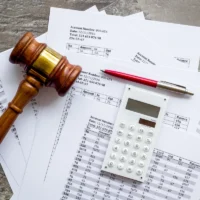Reasons Not to File a Bankruptcy

When you’re under a mountain of debt–medical debts, credit card debts, student loans, mortgages, back taxes, or any other debts–it can be difficult to see a way out. For many people, bankruptcy is a useful tool to let them reset the playing field and start over. Bankruptcy is nobody’s first option, but for hundreds of thousands of people every year, it’s the best option. Before you decide to file for bankruptcy, however, it’s important to consider all your options and determine whether it’s right for you. Below we discuss some of the reasons why you might not want to file for bankruptcy. If you are dealing with mounting debt and considering bankruptcy in Southern California, talk to a trusted Ventura debt relief and bankruptcy attorney at Rounds & Sutter for advice and representation.
Bankruptcy Does Not Clear All Debts
Bankruptcy can be used to take care of a wide range of debts. With Chapter 7, you can seek to discharge your unsecured debts. Unsecured debts are those that are not attached to a piece of property. For example, credit card debts and medical loans are simply attached to you as a person, but they are not tied to your car or home. Your car loan and your mortgage, on the other hand, are secured by collateral–your car and your home, respectively. Any debt that is attached to collateral is a secured debt. Special kinds of debts, including student loans and recent tax debts, could also be excluded from discharge.
If the majority of your debt is secured debt, then a Chapter 7 bankruptcy might not do you much good. You might qualify for Chapter 13, which allows you to roll your secured debts into a repayment plan and give you additional time to get current. If you do not qualify for Chapter 13, however, and Chapter 7 will not address most of your debt, you’ll need to look to other options.
If You Have Joint Debts, the Other Debtor Could Still Be Liable
Bankruptcy can absolve you of your responsibility with regard to your debts, but depending upon your circumstances, that may not be enough. If you have co-signers or other debtors attached to your accounts, the creditor can go after the other party for relief, even if you secure a bankruptcy discharge. If you had a cosigner for a credit card, for example, and you incurred substantial debt, you would both need to file for bankruptcy to eliminate that debt completely.
Bankruptcy Will Affect Your Credit Score
When you file for bankruptcy, your credit score will take a hit. There’s no way around it. The bankruptcy will stay on your credit report for the better part of a decade, and delinquent accounts may show on your report for most or all of that time as well. Low credit can affect your ability to get an unsecured credit card, get loans, purchase a home, and even rent property.
That being said, you can start building your credit score back up as soon as you complete your bankruptcy and obtain your discharge. You can get secured cards and other low-risk credit in order to establish your creditworthiness. Your credit won’t be affected forever, but you will need to build it back up yourself.
Bankruptcy Does Not Solve Other Root Causes of Financial Difficulties
Filing for bankruptcy without a plan in place might not address the problem that led to those difficulties in the first place. It’s important to establish a proper financial plan and good spending habits, and otherwise avoid any mistakes that contributed to the situation. The attorneys at Rounds & Sutter LLP can assist you with your future financial well-being.
Find Financial Relief With Help From a Seasoned Southern California Bankruptcy and Debt Relief Attorney
If you are dealing with heavy debt and considering debt relief options including bankruptcy, please contact Rounds & Sutter for a free, confidential consultation. With offices in Ventura and Westlake Village, we represent clients throughout Southern California, offering considered legal counsel in the face of life’s challenges.
